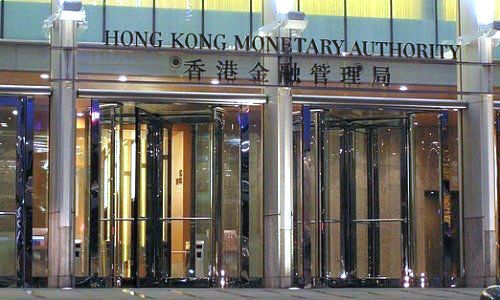HKMA: «The Black Swan Has Arrived»
The Hong Kong Monetary Authority shared its current market views as well as its strategy for the city’s de facto sovereign wealth fund.
HKMA deputy chief executive Howard Lee said he expects the «Exchange Fund» to post losses in the first quarter especially due to a sharp correction in equity markets. This follows a series of headwinds such as the ongoing pandemic and a Russia-Saudi Arabia oil war juxtaposed to a late 2019 that saw signs of stability after the signing of a phase one U.S.-China trade deal.
«In financial markets, the term 'black swan' is often used to describe an unpredictable or unforeseen event with extreme consequences,» Lee described in an HKMA statement. «In this context, the black swan has arrived.»
Performance figures for the Exchange Fund will be released in May.
Weak Outlook and QE
According to Lee, the future of investment management for the Exchange Fund is «plagued with challenges», citing two primary factors: a weak near-term outlook and the effects of quantitative easing to diversification.
Firstly, the global economy is expected to remain weak and corporates will continue to face difficulties that will likely lead to more market shocks. Despite all the measures rolled out by governments and central banks, Lee believes these are mere «band-aid solutions» to buy time for the research and development of effective medicines.
Secondly, the Exchange Fund’s reliance on the traditionally negative correlation between stocks and bonds is being challenged by relaunched QE in the U.S. Although gains were recorded after the program was relaunched, Lee underlined concerns that there may be little room left for bond prices to climb due to record-low yields and this could impact the diversification benefits conventionally linked to the relationship between the two asset classes.
Uncorrelated Exposure
Concerns about the negative correlation between stocks and bonds are especially critical in the current environment given the increasing potential for both asset classes to simultaneously decline. As a result, investors have actively sought alternatives in recent years to better adjust positions to shield themselves from a rainy day.
In addition to reducing non-USD holdings, the HKMA has been expanding its alternative investment allocation to achieve more effective diversification through exposures like infrastructure.
«In this extraordinary time, we will focus on defensiveness and liquidity,» Lee said. «On the other hand, we will also increase the liquidity of our portfolio to ensure the fund can readily liquidate assets to provide funds for maintaining Hong Kong’s monetary and financial stability while meeting the government’s needs in withdrawing fiscal reserve deposits to deal with the epidemic.»






















